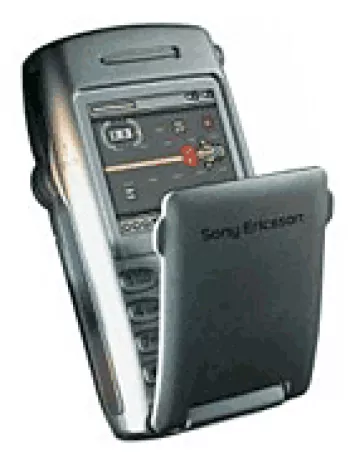Unveiling the Sony Ericsson J230 Specs Prices Pros & Cons

Introduction to Sony Ericsson J230
The Sony Ericsson J230 was announced in November 2005 and quickly garnered attention due to its simple yet effective design and features tailored towards a user-friendly experience. The J230 was considered as an entry-level phone, ideal for users who desired basic functionalities over sophisticated features.
Design and Build
The J230 boasts compact dimensions of 102 x 44 x 18 mm, making it easy to handle and carry. Weighing just 84 grams, it’s notably lightweight which enhances its portability. The device is designed to house a Mini-SIM and comes in three color variants: Cosmo White, Cherry Red, and Deep Blue, catering to a wide range of tastes.
Display
The phone is equipped with a 1.55-inch STN display with a resolution of 128 x 128 pixels. It offers 65K colors which provide sufficient vibrancy for the phone's primary functions. The small screen size with a 117 ppi density provides a clear and adequate user interface, suitable for reading messages and navigating menus.
Network and Connectivity
The J230 supports GSM technology with 2G bands of GSM 900 / 1800, effectively covering basic telecommunication needs in many regions. It includes GPRS Class 8 for minimal data connectivity but lacks support for EDGE, Bluetooth, WLAN, and USB connections, reflecting its basic functionality and focus on call and messaging features.
Memory and Storage
Internally, the Sony Ericsson J230 offers a modest 500 KB of storage. While it does not include a card slot for expandable memory, it supports up to 200 phonebook entries with picture call capability, and maintains records for 10 dialed, 20 received, and missed calls. This memory capacity suits users who necessitate a phone primarily for communication without extensive app or file storage.
Battery Life
The device comes with a removable Li-Ion 900 mAh battery, providing a standby time of up to 280 hours and a talk time of approximately 6 hours. Such battery performance is adequate for a feature phone catering to basic use, allowing users a reasonable duration of connectivity and talk time without frequent recharging.
Sound and Audio
Despite the lack of a 3.5mm audio jack, the J230 comes with a loudspeaker and supports vibration alerts, along with polyphonic ringtones which can be customized with a composer. This was common for phones of this era, catering to users who needed basic audio functionality.
Radio and Communications
The inclusion of an FM radio is a notable feature at this price point, ensuring users have access to media and news on-the-go. However, it lacks modern connectivity options like WLAN and Bluetooth, which aligns with its design as a straightforward communication device.
Additional Features
Adapted for basic communication, the J230 includes messaging options such as SMS, EMS, and MMS, and features a WAP 1.2.1 browser for minimal web navigation. Although Java applications are not supported, a collection of built-in games are accessible for entertainment purposes.
Pricing and Availability
At the time of its release, the Sony Ericsson J230 was priced at approximately 50 EUR, making it an affordable option for users seeking essential mobile communication tools without the additional cost of high-end features. Its status is now discontinued, but it remains a specimen of the feature phone era, marked by simplicity and reliability.
Conclusion
The Sony Ericsson J230 served its role as a dependable, basic mobile phone catering to users with minimalistic needs. Despite its limited features compared to the smartphones of today, it exemplifies efficiency and user-centered design for the early 2000s mobile market. With reliable performance, decent battery life, and fundamental communication tools, the J230 provided an accessible and satisfactory user experience.
Key Features of Sony Ericsson J230
- Lightweight design weighing only 84 g (2.96 oz).
- Compact dimensions making it easy to carry: 102 x 44 x 18 mm.
- Supports GSM technology with 2G bands (GSM 900 / 1800).
- STN display with 65K colors for vibrant visuals.
- FM radio for on-the-go entertainment.
- Includes a phonebook with 200 entries supporting picture call.
- Internal memory sufficient for basic storage needs with 500 KB capacity.
- Long battery life with up to 280 hours of standby time and 6 hours of talk time.
- Available in 3 different colors: Cosmo White, Cherry Red, and Deep Blue.
- Offers messaging options such as SMS, EMS, and MMS.
- Polyphonic ringtones with vibration alerts.
Disadvantages of Sony Ericsson J230
- No EDGE support for faster data transfer.
- No camera feature available.
- Limited internal memory of only 500 KB.
- No memory card slot for storage expansion.
- Lacks Bluetooth and USB connectivity options.
- No WLAN (Wi-Fi) capability.
- No GPS or positioning features.
- No 3.5mm headphone jack for standard audio output.
- Basic display with a resolution of 128 x 128 pixels.
- Uses STN display technology with only 65K colors.
- Java applications are not supported.











View Also
More Phones
All Rights Reserved +13924 Phones © Mobilawy 2025
























